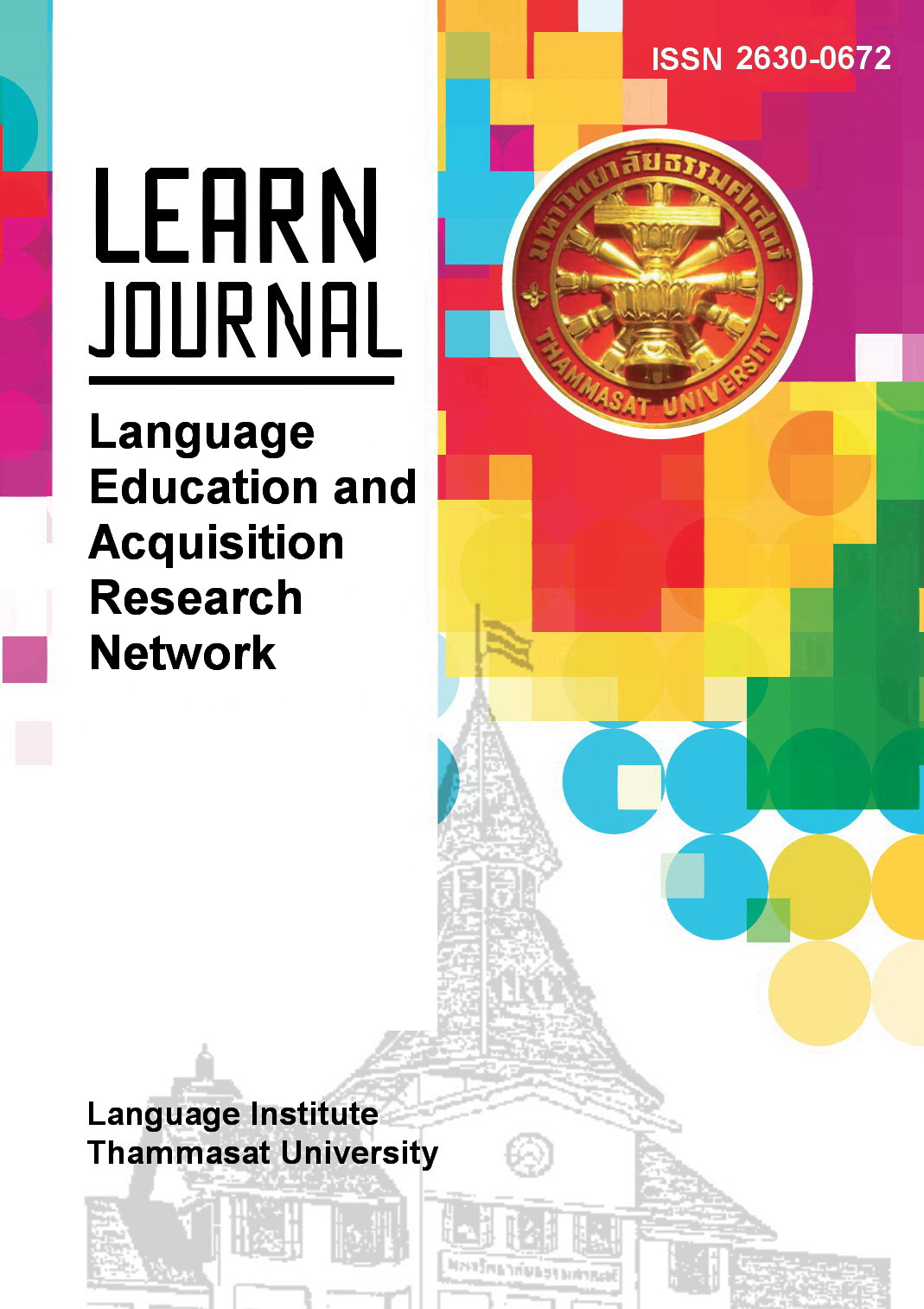The Demands of Employers and the English Competency of the Workforce in the Eastern Economic Corridor of Thailand
Main Article Content
Abstract
The Eastern Economic Corridor (EEC) is a promising project which aims to elevate the living standards of the Thai people. Large numbers of skilled workers with a good command of the English language are urgently needed. The present study aims to examine the English proficiency of Thai employees and explore the expectations of employers in the EEC. The instruments used in the study include an English proficiency test, interviews, and a survey of employees. The findings indicate that employees working with the top management level, (e.g., managers and supervisors) are expected to be more proficient in English than those working at the operational level. Among four modes of communication, the performance of most participants in reception and production were in the same range (A2 – B2). On the other hand, the performance in interaction and mediation fell into the lower range (A1 – B1). New employees are expected to be able to communicate in English at a good level and then learn to use technical English in their fields.
Article Details
References
Report on Test Takers World: TOEIC® Listening & Reading Test. (2021). Education Testing Service. https://www.ets.org/content/dam/ets-org/pdfs/toeic/toeic-listening-reading-report-test-takers-worldwide.pdf.
Ananmana, K., Ninaroon, P., Sittiwarongchai, C., & Pruksaarporn , S. (2018). Thai labor requirements and developing English communication skills in Ranong Province. The UrASEANs: Journal on Global Socio-Economic Dynamics. 6(13).
Buthphorm, O. (Eds.). (2020). Developing core English competency for students majoring in logistics to enter the eastern economic corridor (EEC). Burapha University.
Council of Europe. (2018). Common European framework of reference for languages: Learning, teaching, assessment. Companion volume with new descriptors. https://rm.coe.int/cefr-companion-volume-with-newdescriptors-2018/1680787989.
Damerow, R. M., Pahl, C. A., & Bailey, K. M. (2013). English in the 21st-century workforce: survey of language use in international plurilingual organizations. The European Journal of Applied Linguistics and TEFL, 3(1), 165-185.
Educational Testing Service. (2018). TOEIC report on test takers worldwide. https://www.ets.org/s/toeic/pdf/2018-report-on-test-takers-worldwide.pdf
English, C., & Symonds, Q. (2016). English at work: Global analysis of language skills in the workplace. Cambridge Assessment English.
Education First. (2014). EF EPI-c EF English Proficiency Index for companies. EF Education First Ltd.
Franco, A., & Roach, S. S. (2018). An assessment of the English proficiency of the Thai workforce and its implication for the ASEAN economic community: An empirical inquiry. Open Journal of Business and Management, 6(3),658-677. https://www.scirp.org/journal/paperinformation.aspx?paperid=85846
Hiranburana, K. (2020). FRELE-TH: springboard for holistic English educational reform. LEARN Journal: Language Education and Acquisition Research Network, 13(1), 62-75.
Jobsdb. (2022). https://th.jobsdb.com/th/th/search-jobs/toeic-600/1
Kijpoonphol, W., & Linh, N. D. (2021). Needs of front office staff’s English communication skills. Journal of Thai Hospitality & Tourism, 16(1), 92-105.
Kosashunhanan, K. (2016). The use of English for communication by Thai engineers: case study of Japanese companies at Amata Nakorn Industrial Estate. Suthiparithat Journal, 30(93), 146-159.
Luksaneeyanawin, S. (2007). Unfolding linguistics. Unfolding Linguistics. Bangkok, Chulalongkorn University Printing House.
Nawarattanaporn, S. (2014). An analysis of needs, problems, abilities, and forms in using English oral communication of hotel front office staff in Muang district, Loei province. Research and Development Journal, Loei Rajabhat Uinversity. 9(28),
Numbenjapol, P. (1996). Use of English in business and English language proficiency levels of Kasetsart university graduates working in the business sector. Kasetsart Journal of Social Sciences, 17(2), 149-159.
Office for National Education Standards and Quality Assessment. (2020). External quality assessment: Manual for higher education institutions. https://eq.rmutsb.ac.th/data/EQA/64/001-ManualEQA64.pdf
Yim-on, Y. (2014). The use of English in the career of Thai graduates in Bangkok. Panyapiwat Journal, 5(2), 191-204.


